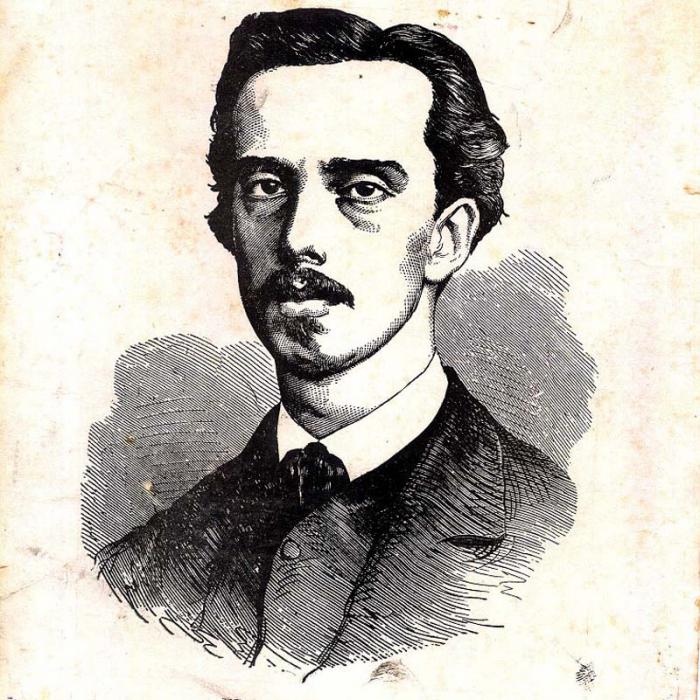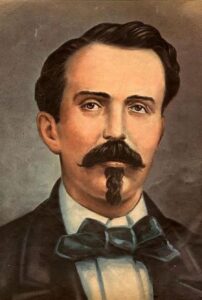Ignacio Agramonte and the Glorious Embrace of Immortality.

Although the existence of the blessed «diamond with the soul of a kiss» was short-lived, his exemplary integrity persists as a living flame in the heart of a people who, with deep gratitude, venerate him.

On May 11th, 1873, the Cuban countryside witnessed one of the most painful episodes in its history. In the heat of the Ten Years’ War, a bullet cut short the life of Major General Ignacio Agramonte y Loynaz, one of the most notable leaders of the effervescent Antillean independence movement.
It happened in the Jimaguayú pasture, southwest of his native Port-au-Prince, when he was trying to undermine the cavalry of a powerful Spanish column.
The cunning of the enemy, the numerical difference between the forces and the thickness of the terrain conspired against the Camagüeyan colossus, who was surprised in his barely 32 years of age in the middle of combat. Agramonte was not only a brilliant military man, but also a jurist of rigorous formation.
Born on December 23rd, 1840 in the bosom of an enlightened family, he was educated in Havana and Barcelona and it was in the capital’s house of high studies where he graduated in Civil and Canon Law.
His career as a lawyer and justice of the peace seemed to promise him a comfortable life, but the libertarian outbreak of 1868 predicted a different destiny. From the uprising of Las Clavellinas to his firm position in the Meeting of Mines, Agramonte made it clear that his commitment with the patriotic cause was absolute and unbreakable: the freedom of Cuba had to be won, without a doubt, by force of machete and fire.
In April 1869, during the Constituent Assembly of Guáimaro, together with Antonio Zambrana, he drafted the first Constitution of the Republic in Arms. He was elected secretary of the House of Representatives, although he soon resigned to fully embrace the armed struggle.
In the battlefield, his tactical genius and his courage were revealed in actions such as Ceja de Altagracia, La Llanada and Sabana Nueva, magnifying his legendary insurgent struggle among his contemporaries and bequeathing to posterity an imperishable mark in the military history of the nation.
The battle of Minas de Juan Rodríguez, in January 1870, marked another milestone under his command, inflicting more than 200 casualties on the enemy. But that year also brought hard personal trials. Spanish troops captured his wife Amalia Simoni and their son, Ernesto, just on the little boy’s first birthday.
The dignity of Amalia, who refused to write to her husband to ask him to surrender, was a testimony to the courage of those who accompanied the patriots not only in the mountains, but also in their souls.
The feat that stands out most in her record is the daring rescue of Brigadier Julio Sanguily, on October 8th, 1871. With a little more than thirty horsemen, Agramonte faced an enemy three times in number.
The operation was a resounding success that saved the second chief of the Liberator Army from falling into Spanish hands and demonstrated the superiority of the Camagüeyan cavalry, which the Major raised to Herculean levels. Until the day of his fall, Agramonte led with admirable courage an endless number of battles throughout Camagüey.
Although the existence of the blessed «diamond with the soul of a kiss» was short-lived, his exemplary integrity persists as a living flame in the hearts of a people who, with deep gratitude, venerate him.
His life was not only a memorable chapter of our history: it was a creed of courage and decorum that summons us, even today, to never give up in the face of injustice, and to defend freedom with the same burning passion with which he, until his last breath, professed it.
Written by Yadiel Barbón.




